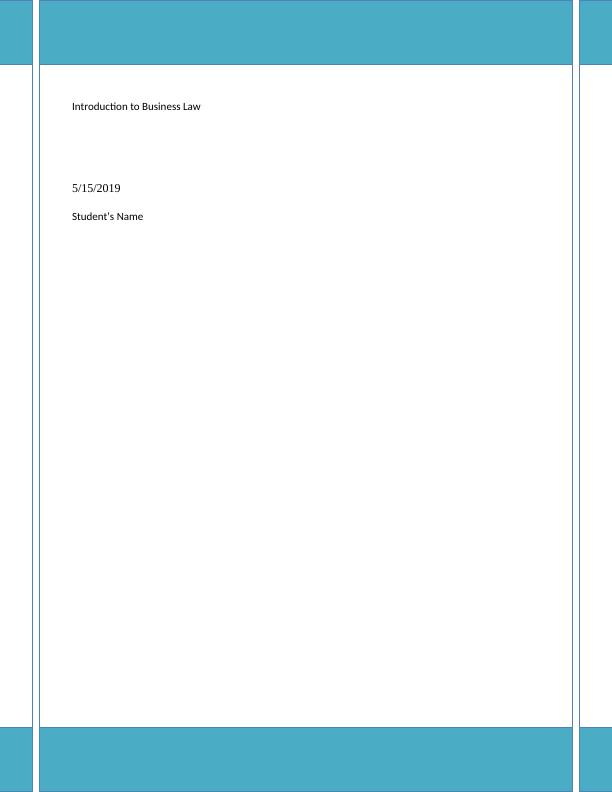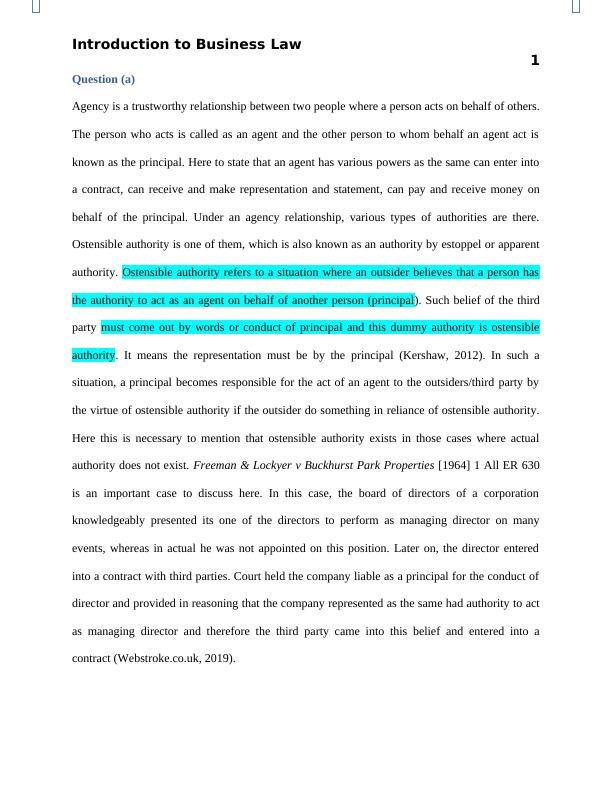Introduction to Business Law
Discuss the legal force of contracts created by agents with ostensible or apparent authority and the meaning of 'estoppel' and 'ostensible'. Cite a relevant case. Also, discuss the extent to which silence can be regarded as misleading or deceptive conduct in commercial negotiations for the purposes of s18 of the ACL. Cite a relevant case.
Added on 2023-03-17
About This Document
Introduction to Business Law
Discuss the legal force of contracts created by agents with ostensible or apparent authority and the meaning of 'estoppel' and 'ostensible'. Cite a relevant case. Also, discuss the extent to which silence can be regarded as misleading or deceptive conduct in commercial negotiations for the purposes of s18 of the ACL. Cite a relevant case.
Added on 2023-03-17
End of preview
Want to access all the pages? Upload your documents or become a member.


